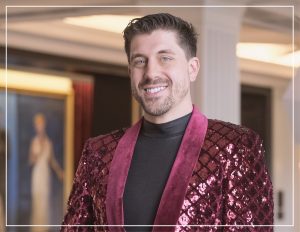Subscriber Benefit
As a subscriber you can listen to articles at work, in the car, or while you work out. Subscribe Now
Strada Education Foundation
Indiana University McKinney School of Law, 2016
Why did you decide to enter the legal profession?
The legal profession beckoned me because of its unending intellectual challenge. I thrive in environments that demand continuous learning and the ability to solve complex problems.
Who is someone who has inspired you in your career?
Bayard Rustin and Pauli Murray. Often overlooked despite their pivotal roles in the civil rights movement, they demonstrate the power of servant leadership. Rustin’s strategic brilliance in organizing protests and Murray’s unwavering advocacy for intersectionality within the movement inspire me to fight for justice with both strategic thinking and inclusivity.
What’s the best advice you’ve ever received?
“Be so completely yourself, everyone else feels safe to be themselves too.” It’s not about seeking recognition for bravery; it’s about paving the way for a more inclusive and authentic environment for everyone.
What makes a good lawyer/judge?
Emotional intelligence—EQ—is a critical skill that elevates a lawyer or judge’s effectiveness. While legal reasoning is essential, the best lawyers and judges understand the human element at play. Strong EQ allows them to empathize with clients, colleagues, and opposing counsel, fostering better communication and collaboration. This, in turn, leads to stronger advocacy and, ultimately, more just outcomes.
What is something you wish people knew about lawyers?
So much of the work we do can seem invisible. When you ask for legal advice, we may be able to tell you a “yes” or “no,” but it can often take hours to get to that answer. We agonize over syntax, word choice or punctuation because any of that can be the difference between millions of dollars or someone’s liberty at risk. I also wish people knew how much toll the combination of meticulous attention to detail with often weighty subject matters can take on so many legal professionals. The mental health crisis in our profession is an unseen burden too many bear.
Tell us about a “lesson learned” moment you’ve had in your career.
Early in my legal career and as a law student, I had the benefit of many mentors to support the precocious young professional that I was. I received talks multiple times about whether I really wanted to present my identity as openly as I chose to. The “lesson learned” moment came years later when those same mentors would reach out again to tell me they were so proud I did not listen to them and that they feel more hope for themselves and the community.
Tell us something surprising about you.
I’ve been engaging in activism for two decades. My first protest was in my freshman year of high school participating in GLSEN’s Day of Silence protest against anti-LGBTQ+ bullying in schools.
If you hadn’t pursued a legal career, what would you be doing?
My passion for languages and different cultures might have led me to a career in foreign language interpretation or translation.
Please enable JavaScript to view this content.
